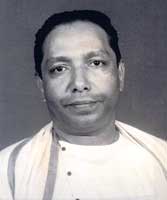Examining the plight of Buddhists
 |
| Professor Gunapala Malalasekera |
The appointment of a Committee of Inquiry by the All-Ceylon Buddhist Congress on April 2, 1954 to look into the plight of Buddhists turned out to be a landmark event in the contemporary history of Sri Lanka. When the government of the day turned a deaf ear to the appeal for the appointment of a commission to look into the grievances of Buddhists, the Congress President, Professor Gunapala Malalasekera gave an assurance that the Congress would appoint its own body. Thus was born the Committee of Inquiry which came to be known as the 'Buddhist Commission.'
The Committee's task was to look into the prevailing conditions in the country and to recommend how an environment could be created for Buddhists to lead a life based on Buddhist principles. A questionnaire consisting of 71 questions was prepared and distributed throughout the country. Replies received were 1713. The Committee held 37 public hearings in principal towns and the response was most encouraging with over 2,500 laity and the clergy giving evidence.
The exhaustive Committee report was presented to the public at a meeting held at Ananda College on February 4, 1956. Starting with the recommendation that the country should be made a Republic within the British Commonwealth of Nations, the Committee made a series of proposals under several headings. These included Religion, Education, Contemporary Society, Social Service, Plight of the Bhikkhus, Administration of temple property and Pirivena education.
With the dissolution of Parliament soon after, the Buddhist Congress presented a document to all political parties requesting that the recommendations be implemented. The Mahajana Eksath Peramuna led by S. W. R. D. Bandaranaike was the only party which accepted it. The party romped to a massive victory at the general election held in April 1956. A resurgence of Buddhism and indigenous culture was noticed after the new government assumed office. |


